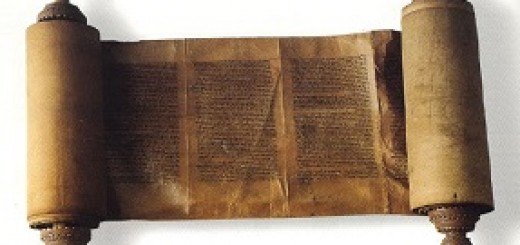By Avner Friedmann
Parshat Tzav discusses the various offerings and laws related to the sacrificial service. The Torah tells us that when it comes to the burnt offerings, a person can either bring an animal, a dove, or a meal offering. The Talmud[1] notes that the Torah relates to each of these three offerings as “A satisfying aroma to HaShem”[2].
The Talmud teaches us a very important lesson. Whether a person is rich and can afford to bring an animal offering or poor and can afford a bird offering, or very poor and can only afford a meal offering, HaShem is equally pleased with the person and his gift, provided he directs his heart to his Father in Heaven, with pure and sincere intentions. Whatever the offering, one should always try to offer his finest, as the Torah states regarding voluntary offerings,[3] “All your choice vow offerings”.
Perhaps one may come to the erroneous understanding that HaShem needs our offerings. Scripture therefore states,[4] “For every animal of the forest is Mine, the beasts of a thousand mountains. I know all mountain fowl and whatever moves in the field is with Me. If I was hungry I would not tell you, for the world and all therein is Mine. Would I eat the flesh of bulls or drink the blood of goats?” In other words, HaShem is telling us, “Theses offerings are for your benefit, not Mine. Through offering them and fulfilling the other mitzvot, you atone for yourself and come closer to Me”. Whether they are great or small is only significant in that a person should give according to his ability to give.
The Talmud states[5] that when a poor man, who does not own an animal, scrapes together the few coins necessary to buy the ingredients of the meal offering, HaShem considers it as if he is offering his very soul, as Torah states[6]: “When a nefesh (soul) offers a meal offering to HaShem”.
When a person gives over his heart and soul to HaShem he does so humbly. This is what HaShem actually desires from us, as the verse states,[7] “The sacrifices of G-d are a broken spirit; Oh G-d, You will not despise a broken and contrite heart.” [8]
The word for sacrifice in the Holy Tongue (Biblical Hebrew) means “coming close”(Korbanקורבן-). This means that bringing an offering with humility results in closeness to HaShem. As noted above, this is more likely with a poor person who is already naturally humble. The wealthy has a greater challenge. Because his offering is more valuable, he may have a sense of pride or arrogance about this. As a result, he may not achieve the same desired effect as the poor man.
The Zohar states that sacrifices are not limited to the physical offerings in the Holy Temple. It rather includes the sacrifices of body and soul that a Jew makes on a daily basis, by devoting himself to the sincere service of HaShem through prayer, Torah, mitzvot and conducting his daily affairs, such as his business dealings, in accordance to HaShem’s will.
Today, we do not yet have the Third Holy Temple, may it be rebuilt speedily in our days. Therefore, we cannot bring the physical sacrifices of bulls, doves or meal offerings. Instead, we offer our heartfelt prayers, as it is written,[9] “Take words with you and return unto HaShem. Say unto Him, ‘May You remove all iniquity and accept our good intentions, and may the utterances of our lips be a substitute for the bulls.’” Just as when bringing the sacrifices it was necessary to do so with a humble and contrite heart, so also our heartfelt prayers should be said before G-d, with a humble and contrite heart.
May we soon experience the true and complete redemption, with the coming of our righteous Moshiach and may we bring our sacrifices in the rebuilt and permanent Third Holy Temple, speedily in our days. Amen
[1] Menachot 110a.
[2] Vayikra 1:9, 1:17, and 2:2.
[3] Vayikra 12:11.
[4] Psalms 50:10-13.
[5] Menachot 104b,see Rashi on the verse.
[6] Vayikra 2:1.
[7] Psalms 51:19.
[8] Vayikra 8b-9b
[9] Hosea 14:3.





















